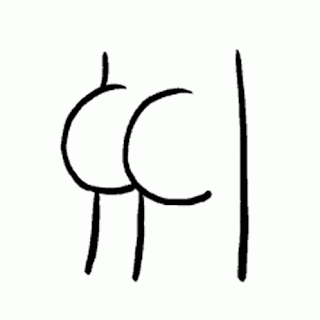https://www.bookswelove.com/donaldson-yarmey-joan/
Rejection:
the act of rejecting; the state of being rejected; a thing rejected.
Rejection
slip: a note from a publisher rejecting the accompanying returned manuscript.
Like
most writers I have received form rejection slips and form rejection emails
telling me politely that the publishing house is unable to accept my
manuscript. An example: Thank you for considering ECW. Unfortunately,
Controling (sic) Her Death is not right for us. I wish you every success in
finding a home for your book.
However,
I have also received emails and letters giving me more details about the
rejection and adding a few encouraging words about my manuscript.
Dear
Joan,
Thanks
for submitting Controlling Her Death: My Mother's Date With
Suicide to Coach House Books. Our editors noted that there's both an
immediacy and a poignancy to the prose that draws the reader in from the first
page.
Sadly,
however, we can't offer to take it on for Coach House. We can publish only a
few novels each year, and we have a surfeit of exceptional manuscripts. This
leaves us in the unfortunate position of being unable to house many of the fine
manuscripts we receive. We’re sorry to say that we aren’t able to fit your work
on our list.
We
wish you all the very best in finding a good home for it.
Sincerely,
Coach
House Books
Dear
Joan Donaldson-Yarmey
Thank
you for submitting your manuscript The
Nursery to Ronsdale Press for possible publication. Our readers have now
made their reports, and I am sorry to inform you that they have recommended
against publication.
After
reading your excerpt our principal editor noted, "This is well written and
has a great opening, but I find that it moves too slowly and that her
memories-at least at the beginning-are the sort of thing that has been often
written about. There is little sense of excitement or the strange. The Stone Angel does something similar,
but with more verve.
We
wish you well in finding a publisher for your manuscript.
Yours
sincerely,
Publishing
Assistant.
But
a rejection, however nicely worded, is still a rejection and it is hard to
accept. In the beginning of my writing career I went through a three day
grieving process each time I received a rejection letter.
On the first day I would feel totally depressed. I would question why I was
writing, who did I think I was trying to write a novel? I would decided that
this would be the last day that I wrote anything. I would wallow in self-pity,
shed a tear in frustration, and even kick a door.
Day two would bring anger. Anger at the publisher for rejecting my manuscript.
Anger at the months it had taken me to write the seventy-five thousand words.
Anger at myself for not having written a publishable novel. I would try to
figure out how to change it to make it better.
Day three brought a realization that maybe a different publisher might like it.
There is the saying: right idea, right publisher, right day. With a renewed
enthusiasm I would send it out again and again. I would decide that no one
could take away the fact that I had written a manuscript, that I had had the
nerve to send it to a publisher.
We
writers are supposed develop thick skins. We are supposed to detach ourselves from
our work. We are supposed to realize that we are not being judged, that our
intelligence, our sense of humour, our sex appeal, and our character are not on
the line. What is being judged is just that one piece of writing we have done.
But it is a piece of writing that we have written, that we have spent hours at
producing. Sometimes, it is tough not to take a publisher's rejection
personally.
But the point is to carry on. With multiple submissions being allowed if
one publisher rejects my manuscript I have the two or three others to look
forward to hearing from. Sometimes I can have two manuscripts and two or
three short stories out in the 'please publish me' world at one time. And when
I finish one novel, I start another so I am engrossed in it to spend
much time worring about the previous one.
The difference between being a success or being a failure is quitting too soon.
And we all know of famous writers whose works were rejected many times before
being accepted and becoming best sellers. Here are a few of the rejections
letters:
"We are not interested in
science fiction which deals with negative utopias. They do not sell." Stephen Kings first published novel, Carrie, was
rejected so many times that King collected the letters on a spike in his bedroom.
When finally published in 1974, 30,000 copies were printed. A year later the
paperback version sold over a million copies in 12 months.
"You’re welcome to le Carré
– he hasn’t got any future."
One publisher sent this to a colleague after turning down The Spy
Who Came in From the Cold.
"For your own sake, do not publish this book."
A publisher wrote to DH Lawrence about his novel Lady
Chatterley's Lover.
Maybe rejection letters make us better writers, maybe they make us better
people, or maybe they just annoy us. Whatever our reaction we have to remember
that, with publishers receiving thousands of manuscripts each year, being
rejected is just one part of the whole writing process.

















